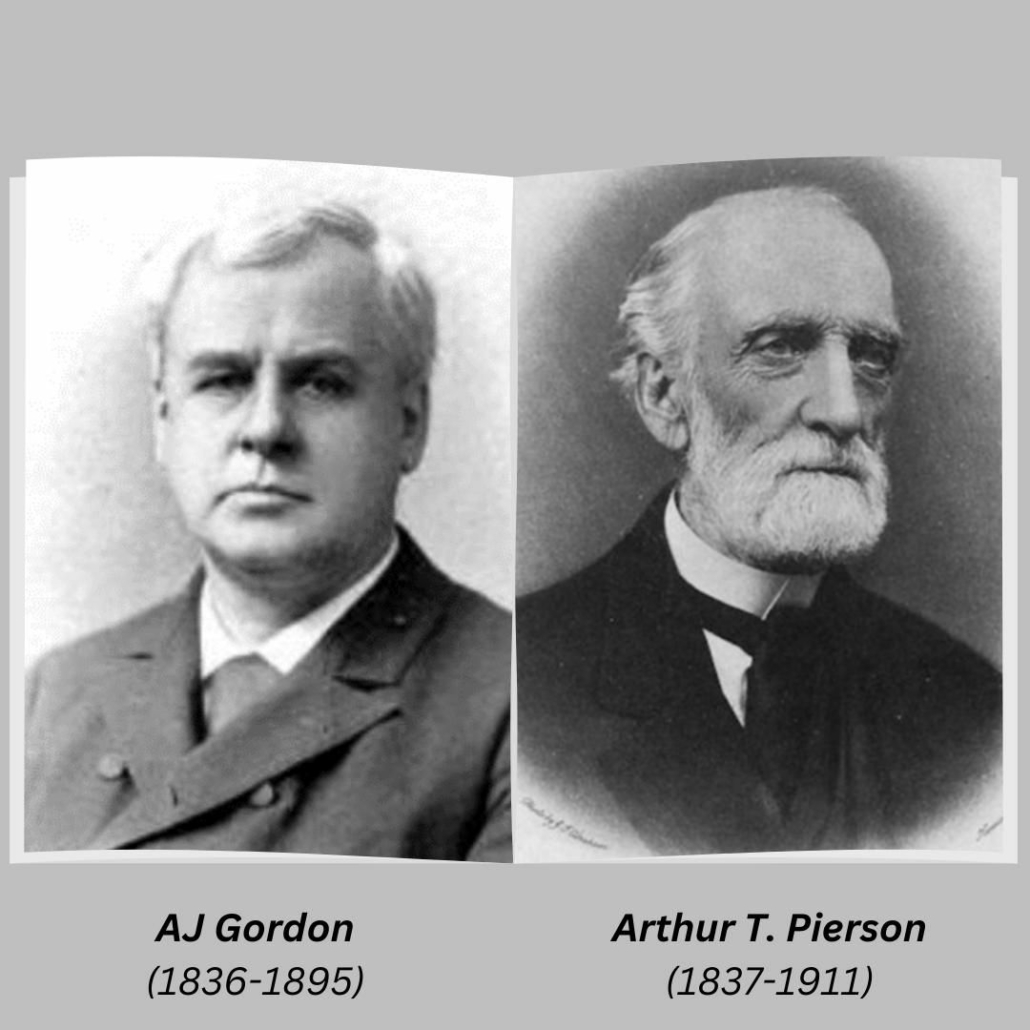Brother Hagin’s Reading Habits
Rev. Tony Cooke
More than three decades ago, I was bothered that certain “theologians” were attacking Brother Hagin about a particular teaching. They were claiming that he had received his ideas from a certain minister who had gotten the information from a metaphysical cult leader. Lowell Ledford was assisting me at that time — he was a seasoned missionary/minister who held an earned doctorate from a well-respected seminary and was a highly skilled researcher.
He and I began to dig into the historic positions of esteemed church leaders, and we discovered that an overwhelming number of renowned, conservative, Bible-believing scholars throughout many centuries held to and had advocated the exact same position as Brother Hagin on that specific topic. What bothered me was not that some people in modern times disagreed with Brother Hagin — everybody’s entitled to their own opinion. What disturbed me was their scholastic dishonesty in trying to link his views to a cultic source instead of acknowledging the abundance of verifiable historical facts.
I took that extensive documentation to Brother Hagin and presented it to him; it refuted the attacks against him and supported his position on that particular doctrine. I said something to the effect of, “Brother Hagin, these people are attacking you and claiming your teaching is from a cultic source and is contrary to orthodox views, but look at all this documentation from church history that supports your position.” His reply was simple and refreshing. He said, “I don’t know why those people try to link my teaching to those false, metaphysical views. What I teach on that subject is exactly what I learned growing up in the Baptist church.”
His statement reminded me of the fact, that while he had no formal education beyond high school, he was a prolific student of the Bible and was well read also. I remember hearing him say that when he was a traveling minister, he would travel with a suitcase full of books and read them in between meetings. I also recall him saying that one year he had purchased every single textbook used for training preachers at Moody Bible Institute and had read them all. In other words, he freely acknowledged learning from others, even going back to his childhood days in the Baptist church.
I appreciate Brother Hagin’s teachings tremendously, but I think it is important to understand that he had gleaned and learned much from many others. That doesn’t mean he didn’t have certain things illuminated to him by the Holy Spirit directly from Scripture, but it’s important to know that there is nothing wrong with learning from others and building on that, in addition to what we have illuminated to us by the Spirit.
Actually, if someone came to me and said they had never learned anything from others and that all they knew was by direct, divine revelation, I would be very alarmed about that person. In addition, if someone said, “I’m going to teach you something that has never been revealed to anyone in the last 2,000 years except for me,” I would be very leery and suspicious of that person as well.
We have all had the privilege of learning from others, and none of us should ever think, “Everyone who has gone before me had it all wrong; I’m the only one who knows the real truth.” Certainly, we should use discernment, “eat the hay and spit out the sticks,” but we should appreciate and benefit from those who have labored in the Word before us.
On a Different Subject
 This is not the topic I referred to earlier, but one of the great benefits I received from Brother Hagin’s teaching is what is found in his mini-book, In Him. Those insights were absolutely life-changing for me, and he articulated and presented those “In Christ realities” so well. Whether he ever read after others who had presented similar ideas or not, I don’t know. What I do know is that others had taught the same type of material before Brother Hagin was even born.
This is not the topic I referred to earlier, but one of the great benefits I received from Brother Hagin’s teaching is what is found in his mini-book, In Him. Those insights were absolutely life-changing for me, and he articulated and presented those “In Christ realities” so well. Whether he ever read after others who had presented similar ideas or not, I don’t know. What I do know is that others had taught the same type of material before Brother Hagin was even born.
If you haven’t read In Him lately, I encourage you to go back through it. You might also enjoy and benefit from some of the quotes below, written along the same lines, pertaining to our identity in the Lord Jesus Christ.
AJ Gordon (1836-1895), from his book, In Christ Jesus
“Our privileges in Jesus are glorious beyond comparison. Never before on earth or perhaps in Heaven was one exalted to utter so great a word as this, ‘I in Christ.’”
“In Christ Jesus we work no longer for life, but from life.”
“His the penalty, mine the sin; His the shame, mine the glory; His the thorns, mine the crown; His the merit, mine the reward.”
“Christian experience is the making real in ourselves, of what is already true for us in Christ.”
“A true Christian walk is a reproducing in our lives of the righteousness which is already ours in Christ.”
“To be in Christ the risen Man, then, is to have eternal life. We no longer trace our genealogy back to Adam now. That registry has been annulled for those whose names are written in the Lamb’s Book of Life.”
“Beholding how God has set Christ’s death to our account, through our partnership with Him, set it also yourself to your account and take possession of the riches of grace and mercy which are thus made yours.”
“Oh, wondrous mystery! Christ became the ‘Son of man,’ that we might become the ‘sons of God.’ He took upon Himself our human nature, that we might be made ‘partakers of the divine nature.’ He was made sin for us, that we might be made the ‘righteousness of God in him.’”
“‘All that Christ has,’ says Luther, ‘now becomes the property of the believing soul; all that the soul has, becomes the property of Christ. Christ possesses every blessing and eternal salvation; they are henceforth the property of the soul. The soul possesses every vice and sin; they become henceforth the property of Christ.’”
“Christ, in raising man into union with Himself, raises him into all that belongs to Him, into His divine life, and into partnership with His divine work so that he dies in His death, rises in His resurrection, ascends in His ascension, is seated with Him in His session at the Father’s right hand, and lives in His eternal life.”
“‘Let me know that I have repented enough and suffered enough,’ is the voice of a faith that is still in bondage to law. The voice of a faith that is free is, ‘Let me hear that Christ died in the stead of sinners, of whom I am chief; that He was forsaken of God, during these fearful agonies, because He had taken my place; that on His cross I paid the penalty of my guilt. Let me hear too that His blood cleanseth from all sin, and that I may now appear before the bar of God, not only pardoned, but innocent.’”

Arthur T. Pierson (1837-1911), from his book In Christ Jesus
“Those three short words, ‘in Christ Jesus,’ are, without doubt, the most important ever written, even by an inspired pen, to express the mutual relation of the believer and Christ.”
“In Christ, we, who in Adam were condemned and alienated, are justified and reconciled.”
“In Him we are God’s elect, accepted, forgiven, redeemed, raised from the dead, sealed as His own, and seated with Him, in the heavenlies.”
“First, Christ Jesus surrounds or embraces the believer, in His own life; second, He separates the believer in Himself from all hostile influences; third, He protects him in Himself from all perils and foes of his life; fourth, He provides and supplies in Himself all that is needful.”
“His cross abolished our judgment; His burial abolished for us the fear of death and the grave; and His resurrection became to us alike the hope and the pledge of life, both for soul and body. It is plain that to be in Christ justified, is far more than pardon or even reconciliation; it includes being counted as just, and put upon the same standing as Christ, before God.”
“Being in Him, we have in Him unity with God by the Holy Spirit, which Spirit becomes the new element or atmosphere of that life of which Christ is the sphere. We have thus a new knowledge of God and a new indwelling of God in us; we thus possess God and are possessed by Him, separate and subject unto Him, so that even our bodies partake of His life and immortality. As Romans deals largely with what we are by our entrance into God, in Corinthians we are confronted with what we are by God’s entrance into us. There, it was the new sphere of life; here, it is the new atmosphere of life. There, we in Him; here, He in us.”
“There are thus four aspects of the crucifixion — in a sense a four-fold crucifixion of the believer: he dies to the law both as a justifier and an accuser; he dies to the world with its fascination and domination; he dies to the flesh with its affections and lusts; and he dies to himself that Christ may live in him.”
“If we are in Christ, He is between us and all our hostile surroundings. If you are in Christ Jesus, you have absolutely no cause for anxiety. In Christ Jesus you have a perpetual theme of most exalted thought, and a perpetual stimulus to holy living (Philippians 4:8-9). In Christ Jesus we find the secret of perfect contentment. In Christ Jesus, the believer finds strength for all things. In Christ Jesus we learn also a divine unselfishness, all selfish motives being displaced by a noble benevolence. Last of all, in Christ Jesus we find every need supplied.”
Concluding Thoughts
When I think about my own personal journey, I realize there is no way to begin to summarize how much I’ve learned from others. In my preaching and in my books, I know that I am frequently passing on things I’ve heard and learned from others, even if I don’t recall when and where I’ve heard certain things.
When Erwin Lutzer was asked about reading after others relative to sermon preparation, he wisely said, “Milk many cows but make your own butter.” Of course, we should never deliberately pass off someone else’s information as our own, but it’s also important to realize that there is no way, practically speaking, to cite the source of absolutely everything you say. Someone has probably made that statement before, whether you even realize it or not.
Really, we all have a debt to people we’ve learned from. I deeply appreciate what Albert Einstein said, “A hundred times every day I remind myself that my inner and outer life depends on the labors of other men, living and dead, and that I must exert myself in order to give in the same measure as I have received and am still receiving.” May God give all of us the humility to learn from others and to appreciate their labors.

